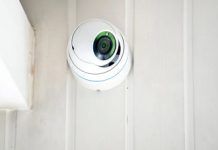Proposals to erect a series of remote video surveillance towers on the US-Canadian border have come under attack from state officials and politicians. In response to a public consultation on the proposals, Vermont’s Attorney General, Thomas Donovan, raised concerns about the US Customs and Border Protection’s (CBP) plans to install the surveillance towers in the state, as part of a system to monitor a 295-mile stretch of the border.
While he recognised the importance of monitoring borders – including the installation of remote video surveillance systems – for legitimate law enforcement reasons, he was concerned about the possibility of “unwarranted surveillance or potential interference” with citizens’ privacy. “I am aware of the potential for overzealous application and use of unnecessary surveillance systems, and the potential for abuse of those systems to [monitor] domestic subjects, as opposed to border threats.
“CBP has been known to use its surveillance techniques to monitor peaceful domestic protests and to label political adversaries as ‘threats’. For example, in 2017 CBP stationed an RVSS tower in San Diego to monitor political opposition to its border wall, citing the ‘emerging threat of demonstrations’. Our local communities should not be subjected to the type of surveillance that has been observed in practice with respect to lawful, peaceful protests in other areas of the country.”
Donovan said CBP had failed to make a compelling case that the scale and scope of the proposed surveillance was necessary, and to adequately take into account privacy concerns.
“Accordingly, CBP should place adequate safeguards and implement the requisite protocols to direct their surveillance against possible terrorist threats and illegal border activities. These safeguards and protocols should ensure that Vermonters are free from intrusive 24-hour surveillance while living or visiting near the border for legitimate reasons.”
US lawmakers representing Vermont, including senator Bernie Sanders, also expressed concerns about the plans. In a joint statement they said:
“The Congressional delegation has serious concerns about the Border Patrol’s plan to install massive surveillance camera towers — involving pristine farmland — along the US-Canadian border. Community members have expressed concerns over what they feel has been limited outreach and communication related to privacy intrusions, property rights, and environmental hazards. The Congressional delegation shares these concerns. The delegation will be requesting a 60-day extension of the public comment period to allow citizen and
congressional input on CBP’s proposal.”
The Vermont branch of the American Civil Liberties Union (ACLU) also voiced its opposition to the surveillance towers. Its Executive Director, James Lyall, said: “Vermonters value their privacy and are proud to live in vibrant, welcoming and tight knit communities. CBP’s proposed surveillance towers would accelerate the gradual militarisation of our region and threaten the privacy, civil liberties and safety of countless local residents. This proposal should be forcefully rejected.”








